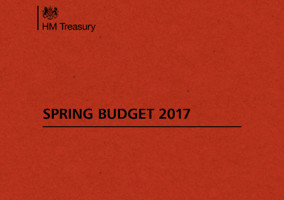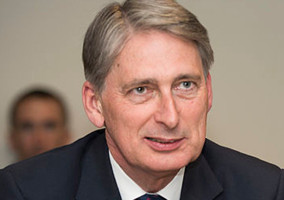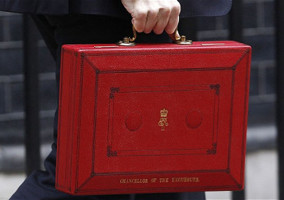The voluntary sector is worried about the lack of mention for charities in the Budget, but this isn’t the right yardstick, says David Ainsworth
There was much consternation in the voluntary sector that there was next to no mention of the word charity in the Budget speech or the Budget documents.
This is certainly bad for us here at Civil Society News. There is relatively little to write about. But measuring it by any other yardstick, I’m not sure this view is correct.
Firstly, there is the fact that when the Chancellor does mention something to do with charities, it often comes with the word “calamitous” attached quite closely. The philanthropy tax, fit and proper persons, and substantial donor legislation all spring to mind.
Secondly, what appears to be good news is often less exciting than it seems.
One year there was much excitement because there was a Transition Fund for the sector to cope with the drop in government funding. However it transpired that this £100m was actually just shifted from the next year’s Office for Civil Society budget, and was not new cash at all.
Then there was another year when a number of new tax reliefs appeared which would apparently revolutionise giving. One was the Gift Aid Small Donations Scheme – result: almost nothing – and the next most significant was inheritance tax relief. This has proved useful, but of modest overall benefit.
Having watched the sector’s reaction to particular stories by tracking readership numbers, it appears that charities get more excited about quite small pots of cash, but less enthused by sweeping systemic changes that cost, or bring, loads of money.
No one got very excited about £300m of extra social care funding today, or about the £2bn from dormant assets announced last week. But a year or so ago, the £20m Local Sustainability Fund drew a huge amount of interest.
This probably makes sense to individual charities. Money you can apply for is a hundred times as interesting as a general funding pot. But as a sector, as a whole, there needs to be a change of focus.
I can think of three things the government can do to really seriously change the financial environment for the sector: introduce substantial changes to commissioning, get serious about giving grants, and stop making charities pay VAT. These are all very long-term goals, and it won’t be easy to persuade a government that is so fiscally constrained to do anything.
Politicians could potentially adopt a more permissive approach to sector campaigning, and encourage volunteering and community engagement, and I sense that if they did, this would excite the sector more. But this isn’t really something politicians are very good at. No major government initiative to change hearts and minds has ever really worked. Seeking these solutions is probably less useful than it initially appears.
It would be fantastic if government would recognise charities as part of the core solution to long-term social problems, and include the sector more in its plans. But government is a pretty self-referential beast, drawing eclectically and randomly from outside itself. It is difficult to influence and steer, and it finds it hard to change from the courses it always runs. Individual politicians do care a lot about charities, and do give them a serious amount of time. But it feels unlikely that we will ever see a fundamental change of course.
Nor should the sector feel singled out. There was little mention in the Budget of the construction sector either, or aerospace, or tourism, or retail. These are all massive industries, bigger than charities. Perhaps they, too, are having navel-gazing sessions about why they were overlooked.
The truth is that charities, given the size of the sector, are unusually prominent in most Budget documents. This is possible because financial definitions are actually a terrible way of measuring the impact of the sector, which generates a lot of what are sometimes described, in accounting terms, as "non-exchange transactions".
Yes, it would be nice if the Budget was full of mention of charities, and the sector was uppermost in the minds of policymakers and civil servants. But we have to accept that there are other things going on. And while we may not have had a mention, it was not as if charities were ignored: the voice of the sector spoke loudly on social care, and it was listened to. On other issues – cancer, or poverty, or equality – the sector is also listened to. Million pound charities often speak louder than billion pound companies when it comes to generating change.
All this being said, there are fundamental changes the government ought to deliver on behalf of charities - changes which would save the government money and improve the lot of its citizens. Yet if they sector is to ask for this, it must accept that relationships are a two-way street. If the sector was to get its own house in order before it asks for further change on the part of government, those changes would be easier to demand, and harder to refuse. The problems of data protection, reputation and governance are all big challenges to be addressed.
Finally, we have to think that the charity sector may turn to government too often as the solution to its own ills. The first focus has to be internally: on mission, and on delivering fairness and equality. So the sector needs to double down on serious, systemic change and on protecting itself from the fairly major headwinds thrown up by the economy, without always demanding that the solutions to its problems emerge from the state.
And on those terms, if Phillip Hammond hasn’t stuffed the Budget with gimmicky funds and interestingly designed new reliefs, perhaps it just doesn’t matter very much.
Related articles












